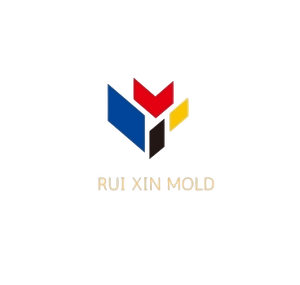





Custom CNC Machining Mold Slider and Lifter
Custom CNC machining mold sliders and lifters are precision components in injection molding designed to enable the release of undercut or complex-shaped plastic parts from the mold. These components are custom-made to suit specific mold designs, ensuring smooth ejection and reducing mold wear and tear.
Design and Engineering:
- CAD modeling of sliders and lifters tailored to the mold geometry.
- Simulation and mold flow analysis ensure smooth movement and durability.
CNC Machining Process:
- Material Cutting: High-quality materials are cut to size.
- Precision Machining: CNC milling, turning, and grinding create the required profiles, slots, and angles.
- Heat Treatment: Enhances hardness and wear resistance.
- Finishing: Polishing or coating is applied for smoother operation and reduced friction.
Quality Inspection:
- Dimensional checks with CMM and hardness testing ensure accuracy and reliability.
Tool Steels:
- H13: High toughness and wear resistance, ideal for high-temperature molds.
- D2: High wear resistance and strength, suitable for long production runs.
- P20: Commonly used for molds requiring moderate wear resistance.
Alloy Steels:
- Used for lifters and sliders requiring enhanced toughness.
Surface Coatings:
- Nitride, titanium nitride (TiN), or hard chrome plating for wear resistance and corrosion protection.
Automotive Industry:
Sliders and lifters are used in molds for complex automotive parts, such as grille inserts, lamp housings, and dashboards.
Consumer Goods:
Essential for producing appliances, toys, and electronic casings with intricate designs.
Medical Equipment:
Precision lifters and sliders aid in molding parts with undercuts and fine details.
Industrial Equipment:
Molds for components requiring robust and repeatable performance.
High Precision: Ensures tight tolerances and smooth operation within the mold.
Durable and Reliable: Heat-treated materials and coatings extend component life.
Customizable: Fully tailored to unique mold designs and production needs.
Efficient Mold Performance: Improves ejection reliability and reduces cycle times.
Versatile Applications: Suitable for molds across multiple industries.
Q: What are the benefits of custom machining for mold sliders and lifters?
A: Custom machining ensures exact fit, smooth operation, and optimal performance for specific mold designs.Q: How do sliders and lifters improve mold functionality?
A: They allow for the release of undercuts and intricate part shapes that would otherwise be impossible with standard ejection.Q: What tolerances can be achieved for custom sliders and lifters?
A: CNC machining can achieve tolerances as tight as ±0.01 mm for critical features.Q: Can sliders and lifters be repaired or replaced?
A: Yes, damaged components can be remanufactured or repaired to extend mold life.Q: How long does it take to produce custom sliders and lifters?
A: Typical lead times range from 7-15 days, depending on complexity and order volume.
Dongguan Ruixin Precision Mold Company specializes in manufacturing high-quality injection mold components, including Mold Cavities, Mold Sliders, Mold Inserts, Mold Lifters, Guide Bushings, and more. With years of expertise, we deliver precision-engineered solutions tailored to meet the demands of modern industrial and manufacturing applications. Our commitment to quality, innovation, and customer satisfaction ensures that every component we produce enhances efficiency and product performance. Trusted by clients worldwide, we pride ourselves on reliability and attention to detail, making us a preferred partner in the precision mold industry

Advantages and Challenges of CNC Machining

CNC milling and turning are highly accurate and repeatable processes. Tight tolerances between +/-0.001″ – 0.005″ can be achieved, depending on specifications. Machines can be programmed to reliably run for 24 hours, 7 days a week if necessary, so CNC milling is a good way of getting parts produced on demand.
Using standard tooling, a CNC machining service is particularly valuable for creating one-off parts, custom CNC parts, i.e., for replacing legacy components or delivering a specialized upgrade to a customer. It is also conceivable to scale single-part production to runs exceeding 10,000 units. Depending on the unit number, size, and complexity, the turnaround for CNC machined parts can be as short as one day. With shipping and delivery, deadlines can be met within a week.
One trade-off when taking advantage of the high performance of CNC machining processes is that geometric complexity comes at a cost. Simple, chunky parts are the best designs for CNC milling and turning. There will always be some design limitations due to tool access, although the degree of this effect is relative to the number of axes on the machine. In other words, the more axes used, the more complex the features can be achieved.
Another trade-off is that start-up CNC machining costs can be expensive. It is necessary to have a trained professional perform the setup, tool loading, and programming on CNC mills and lathes. Luckily this cost is fixed, so by taking advantage of the same setup for multiple parts, it becomes more economical. Saving money is also achieved by keeping part repositioning to a minimum. Machining at 5-axis and above can sometimes be more economical on multi-faceted geometries because it eliminates the need to manually reposition the part.





